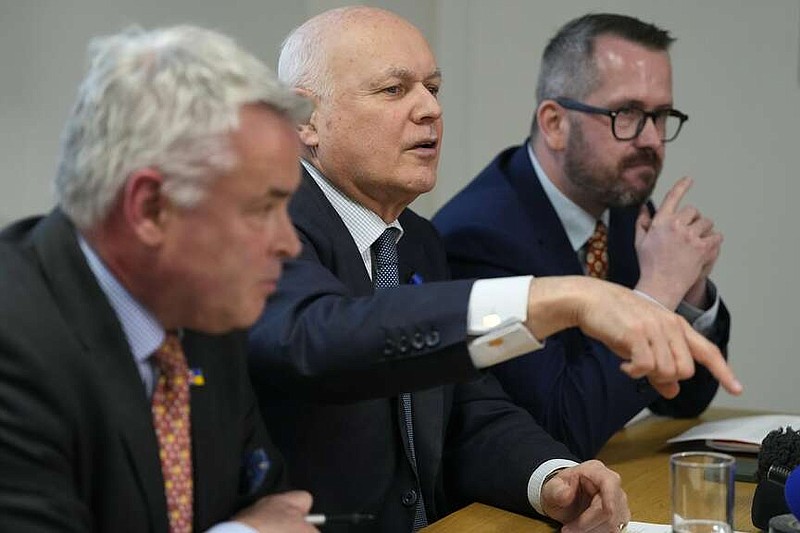WASHINGTON -- Hackers linked to the Chinese government launched a sweeping, state-backed operation that targeted U.S. officials, journalists, corporations, pro-democracy activists and the U.K.'s election watchdog, American and British authorities said Monday in announcing a set of criminal charges and sanctions.
The intention of the campaign, which officials say began in 2010, was to harass critics of the Chinese government, steal trade secrets of American corporations and to spy on and track high-level political figures. Western officials disclosed the operation, carried out by a hacking group known as APT31, while sounding a fresh, election-year alarm about a country long seen as having advanced espionage capabilities.
The U.S. Justice Department charged seven hackers, all believed to be living in China. The British government, in a related announcement, imposed sanctions on two of the defendants in connection with a breach that may have given the Chinese access to information on tens of millions of U.K. voters held by the Electoral Commission.
"The Justice Department will not tolerate efforts by the Chinese government to intimidate Americans who serve the public, silence the dissidents who are protected by American laws, or steal from American businesses," Attorney General Merrick Garland said in a statement, adding that the "case serves as a reminder of the ends to which the Chinese government is willing to go to target and intimidate its critics."
As part of the cyber-intrusion campaign, prosecutors said, the hackers sent more than 10,000 emails to targets all over the world that purported to be from prominent journalists but that actually contained malicious code. Once opened, the emails installed tracking software that allowed the hackers to know the victims' location, IP addresses and even the devices they used to get email.
The hackers further leveraged that tracking to target home routers and other devices, "including those of high-ranking U.S. government officials and politicians and election campaign staff from both major U.S. political parties," the indictment says.
Targets included officials at the White House and multiple government agencies, including the Treasury and Commerce departments, senators from both parties, the spouse of a senior Justice Department official, political strategists, and political figures from around the world who were critical of the Chinese government, including members of a pro-democracy advocacy group.
The Justice Department said the hackers also began targeting email accounts belonging to senior staffers of a presidential campaign in May 2020, several months before the general election.
The U.K.'s Foreign Office said Monday the hack of the election registers "has not had an impact on electoral processes, has not affected the rights or access to the democratic process of any individual, nor has it affected electoral registration."
British cybersecurity officials also said that APT31 hackers "conducted reconnaissance activity" against British parliamentarians who were critical of Beijing in 2021. They said no parliamentary accounts were successfully compromised.
Britain's Deputy Prime Minister Oliver Dowden said his government will summon China's ambassador to account for its actions.
China's Ministry of Foreign Affairs said before the announcement that countries should base their claims on evidence rather than "smear" others without factual basis.
"Cybersecurity issues should not be politicized," ministry spokesperson Lin Jian said. "We hope all parties will stop spreading false information, take a responsible attitude, and work together to maintain peace and security in cyberspace."
Information for this article was contributed by Frank Bajak, Didi Tang and Dave Collins of The Associated Press.

